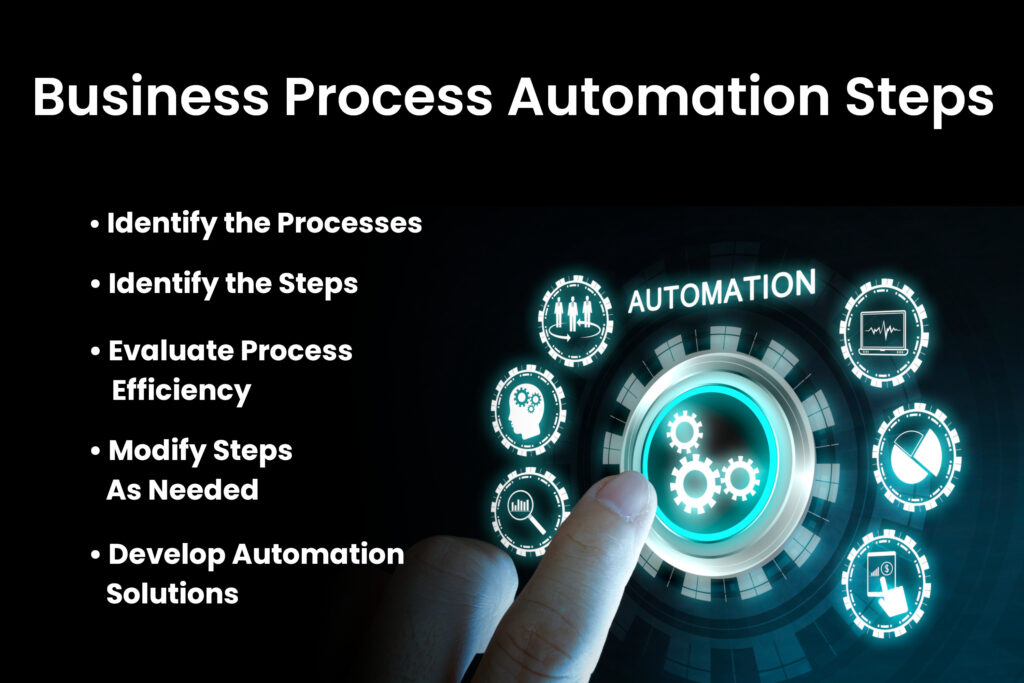Is your company bogged down by inefficient processes that inhibit productivity and ultimately, limit profitability? With the emergence of Digital Transformation in recent years, business process automation has gained tremendous popularity amongst businesses both large and small as they strive to make improvements to their processes. Fortunately, it’s relatively easy to deploy business process improvement solutions as part of your next Digital Transformation project.
What is Business Process Automation (BPA)?
Business process automation — also known as BPA — entails the development of software that performs a very specific set of tasks to complete a process. For example, a company’s accounting department may choose to automate the process for documenting incoming payments in accounts receivable.
BPA development projects are ideal for processes with a distinct and predictable set of steps. Through automation, an organization can improve productivity, while simultaneously eliminating human error from the equation. What’s more, employees who had been performing that newly-automated process are freed to focus their efforts on other, higher-level tasks.
This type of Digital Transformation project also encompasses business process automation improvement solutions. These development projects represent an opportunity to improve a process. Instead of automating a process exactly as-is, you overhaul the process steps in a way that ultimately improves efficiency, productivity or the end result or outcome.
How Do You Develop Business Process Automation Solutions?
Often, over time, processes end up being extremely inefficient because they’re subject to modifications that may get the job done, but the overall efficiency level leaves something to be desired. A business process automation project represents a great opportunity to overhaul inefficient processes and to create entirely new ones.
The development of business process automation solutions begins with a clear understanding of the basic steps that will comprise your process. Once these steps are successfully outlined, it’s time to determine precisely how the process can be improved in terms of efficiency and overall productivity. Steps are added to the process in order to achieve the desired results. This information is used to create a map of sorts that serves as the basis of your business process automation solution.
Including Employees as You Develop Business Process Automation Solutions
Notably, it’s important to include employees or others who are directly involved with the process that you’re seeking to automate. These individuals will have process-related insights and information that may otherwise be elusive to the development team and business leaders. This way, you can proceed with confidence knowing that your solution will be effective, with all the steps you need to get the job done.
BPA solutions can get rather complex, especially when it comes to integrations. For example, a process may require data from a company’s CRM and point of sale (POS) systems. So in this instance, the business process automation developers would need to establish an integration whereby data automatically flows in from the CRM and POS systems and into the BPA software platform.
There are other cases where you may need to send data from the process automation software to various enterprise systems and software platforms. When all is said and done, you can end up with a complex web of data flow. This underscores the importance of working with an experienced business process automation development company.
Using AI and Machine Learning With Business Process Improvement Solutions
At 7T, we have extensive experience with business process improvement solutions, so you can deploy your new process automation with tremendous confidence. It’s even possible to integrate artificial intelligence (AI) and machine learning (ML) technology with your automations, leading to gradual improvement over time.
Machine learning can be used to generate AI models, which are the algorithms that drive AI processes. ML allows you to identify patterns and trends, which are then used to improve the AI model, allowing for more accurate predictions. Over time, machine learning brings about improvements to the AI model, allowing for better performance. The end result is a self-improving business process automation that generates a healthy ROI that may even grow over time.
The Digital Transformation development team here at 7T is guided by the approach of “Digital Transformation Driven by Business Strategy.” As such, the 7T development team works with company leaders who are seeking to solve problems and drive ROI through Digital Transformation and innovative business solutions such as artificial intelligence and machine learning-powered process automations.
7T has offices in Dallas, Houston and Charlotte, but our clientele spans the globe. If you’re ready to learn more about business process improvement solutions, contact 7T today.











